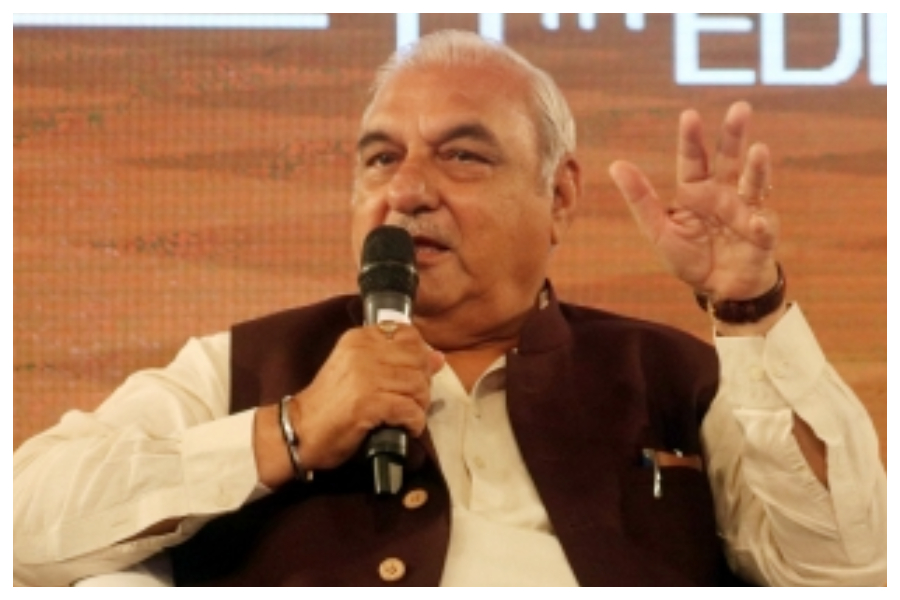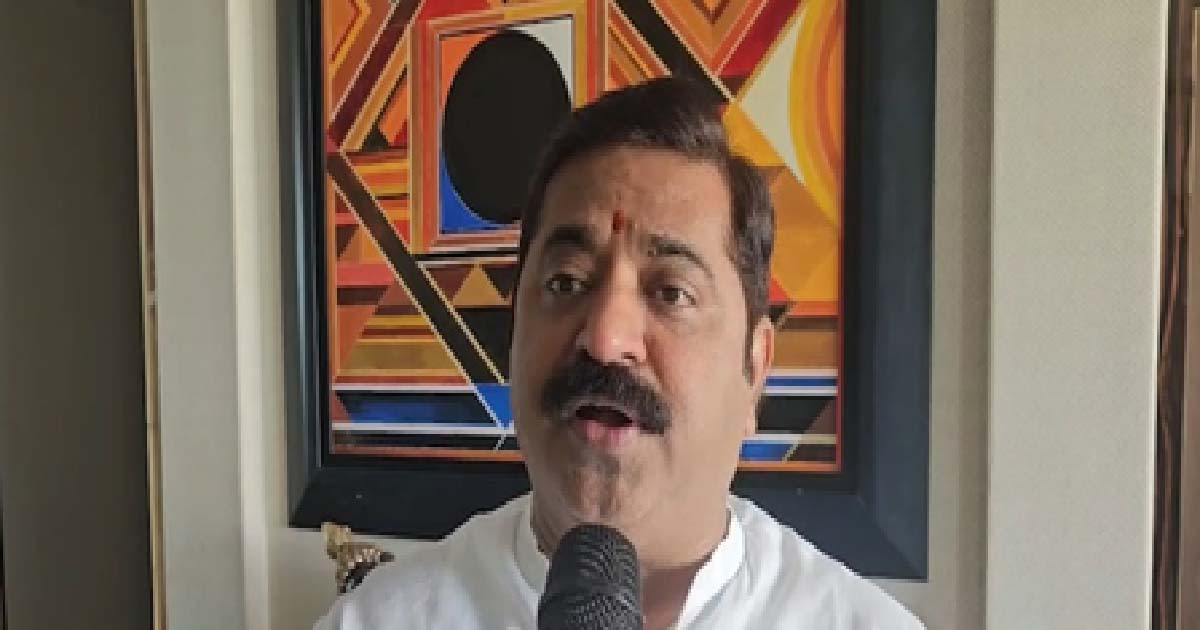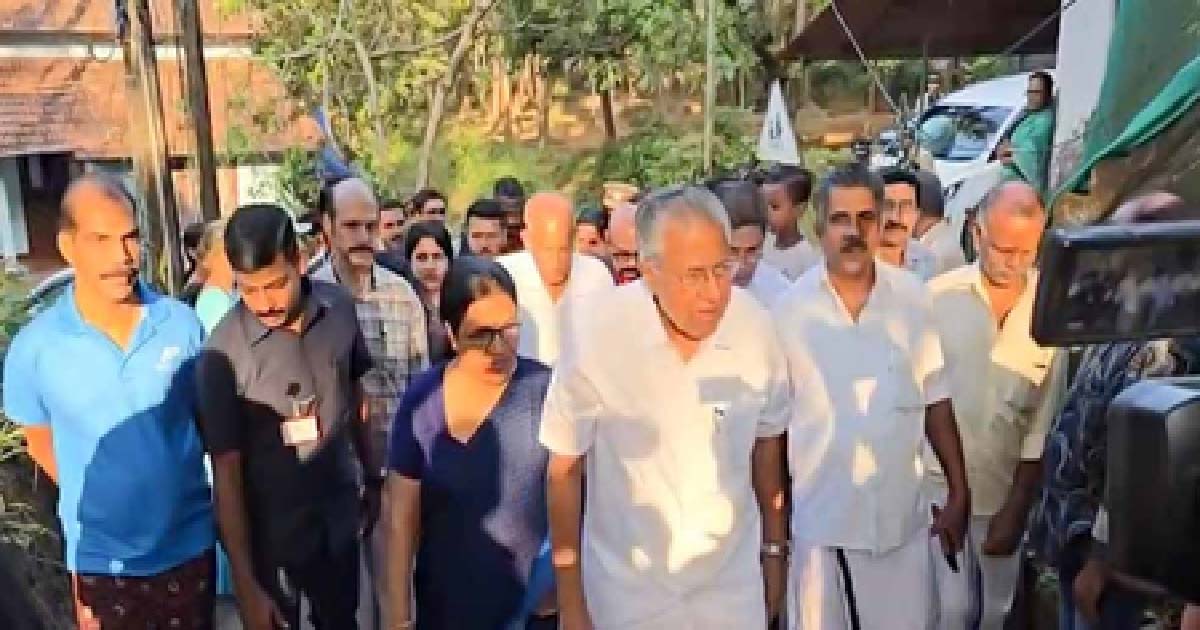National News
Haryana in debt trap of over Rs 2.29 lakh crore

Every child born in Haryana is saddled with a debt of Rs 1 lakh. This is true with the estimated total debt on the state increasing to over Rs 2.29 lakh crore.
The main opposition Congress, which was at the helm for a decade till 2014, has been blaming the BJP-JJP government for pushing the state into debt and taking it towards bankruptcy.
As per official figures, the state’s debt was Rs 70,931 crore in 2014-15 when the BJP assumed power in the state for the first time.
In the current fiscal, it is expected to touch a whopping Rs 229,976 crore by the end of this fiscal.
As per budget estimates of 2021-22, the debt to GSDP ratio is estimated at 23.27 per cent in 2020-21, while it was 16.23 per cent in 2014-15. For the next fiscal, it is estimated at 25.92 per cent.
Leader of Opposition and two-time Chief Minister Bhupinder Singh Hooda told IANS that the BJP-JJP government is taking the state towards bankruptcy.
“That is why the debt figures were not clearly stated in the last budget speech. As per our estimations, the total debt has increased to Rs 2.25 lakh crore by March 2021,” he said.
Opposing the steep hike in development charges in areas falling under the civic bodies, Hooda said the Congress would question the government on issues of corruption, debt and unemployment in the upcoming Budget session of the Assembly.
He said the state had a debt of about Rs 70,000 crore when the BJP took over the reins of the state after the 2014 Assembly elections. Before handing over the helm several projects of national importance were commissioned by the Congress government.
“In the past seven years, the debt has increased to Rs 2.5 lakh crore,” said Hooda, adding no major project was established. “Where have these thousands of crores gone?”
According to Hooda, under the Congress government Haryana had become number one in per capita income, investment and generating employment.
“The neglect of 52,000 anganwadi workers is a living example of the negative thinking of the BJP-JJP government towards the daughters. Women workers say the government is not implementing the announcement made by the Prime Minister on September 10, 2018, to increase the honorarium of workers by Rs 1,500 and for helpers by Rs 750,” he said.
A revenue surplus state till 2008-09, Haryana has consistently been in deficit after that. In 2016-17, the debt burden was Rs 124,935 crore.
In 2017-18, the interest payments were pegged at Rs 11,257 crore — up from Rs 9,616 crore in 2016-17. In 2015-16, it was Rs 8,284 crore.
CRISIL’s last year study of the top 18 states, including Haryana and Punjab, says the aggregate indebtedness of states, measured by debt to gross state domestic product (GSDP), is expected to remain elevated at 33 per cent this fiscal, despite the post-pandemic recovery bolstering the shrinking revenue graph.
The ratio had risen to a decadal high of 34 per cent last fiscal. Sticky and elevated revenue expenditure and the need for higher capital outlay will keep borrowings up this fiscal, it adds.
For the rising financial debt, Chief Minister Manohar Lal Khattar, who also holds the finance portfolio, is blaming the Congress government for leaving behind a debt liability of Rs 98,000 crore.
“In 2014, when the BJP assumed power the state had a debt of Rs 98,000 crore, while the Opposition used to claim it to be Rs 61,000 crore,” he told the media on February 23.
Also he defends by saying the loan liability is increasing because the capital expenditure (money spent on creating assets) is also increasing.
“When the BJP came to power in 2014-15, a debt of Rs 27,860 crore of power distribution companies was included in the government’s debt under the Ujjwal Discom Assurance Yojana. For this reason, the total debt has increased. When the Congress tenure ended, the debt liability was Rs 70,900 crore. If the loan amount of Rs 27,860 crore taken by power discoms is added, the total debt is Rs 98,000 crore,” Khattar said.
He said revenue collection had dipped during the coronavirus period and an additional expenditure of Rs 1,500 crore was incurred.
Blaming the BJP-JJP government for the monstrous cycle of a huge debt, Congress general secretary Randeep Singh Surjewala said, “The BJP-led government has increased the state’s debt from Rs 68,000 crore to Rs 2 lakh crore in seven years of its rule.”
Officials said the outstanding debt by the end of Khattar’s maiden term from 2014 to 2019 was Rs 185,463 crore.
While presenting the budget in March 2021, Khattar said the debt liability of the state is likely to go up to Rs 229,976 crore as on March 2022 from Rs 199,823 crore as on March 2021, constituting 25.92 per cent of the gross state domestic product (GSDP).
Crime
SC stays conviction of ex-NCP minister Manikrao Kokate in Nashik housing fraud

New Delhi, Dec 22: The Supreme Court on Monday stayed the conviction of senior Nationalist Congress Party (NCP) leader and former Maharashtra minister Manikrao Kokate in the 1995 Nashik housing fraud case.
A Bench of Chief Justice of India (CJI) Surya Kant and Justice Joymalya Bagchi issued notice to the Maharashtra government on Kokate’s plea challenging the refusal of the Bombay High Court to stay his conviction. Though it protected his membership in the Maharashtra Legislative Assembly, the apex court clarified that Kokate will not be allowed to exercise any governmental powers while the proceedings are pending.
“Issue notice. Meanwhile, the conviction of the petitioner shall remain stayed to the extent that there shall be no disqualification as a Member of the Legislative Assembly. However, no power shall be exercised by the petitioner,” the CJI Kant-led Bench ordered.
The relief from the top court comes days after the Bombay High Court had refused to stay Kokate’s conviction but suspended his two-year jail sentence and granted him protection from arrest as it heard his revision plea against the sessions court verdict.
Earlier, a Nashik sessions court had convicted Kokate in a case involving the illegal acquisition of government flats reserved under the Chief Minister’s quota and sentenced him to two years’ rigorous imprisonment along with a fine of Rs 50,000.
Following the sessions court verdict, Kokate was stripped of the Sports and Minority Affairs portfolios, and he resigned from the Maharashtra Cabinet. His resignation was accepted by Maharashtra Deputy Chief Minister and NCP chief Ajit Pawar amid a chorus from the Opposition.
The case against Kokate and his brother Vijay Kokate dates back to 1995 and pertains to the alleged misappropriation of flats meant for low-income individuals who do not own any other property.
The prosecution alleged that the brothers submitted forged affidavits and documents to acquire flats in the Nirman View Apartment at Canada Corner in Nashik. Investigations had also revealed that the brothers were using two additional flats in the same building that had been allotted to other beneficiaries.
Based on an inquiry by the district administration, Vishwanath Patil, then an official of the Urban Land Ceiling (ULC) department, lodged a complaint, following which a fraud case was registered at the Sarkarwada Police Station.
Since his induction into the Cabinet, Kokate has frequently courted controversy. He was earlier divested of the Agriculture portfolio following allegations that he was playing games on his mobile phone during a Legislative Council session.
Kokate denied the charge, but the episode drew widespread criticism. He also drew criticism for remarks on farmers and for attacking coalition partner BJP during a municipal campaign.
National News
‘Entered poll arena with winning mindset’: Ram Kadam on massive win in Maha local body elections

Mumbai, Dec 22: Reacting to the Maharashtra local body election results, BJP MLA Ram Kadam on Monday said that the Mahayuti alliance entered the electoral battle with confidence and a winning mindset, which ultimately translated into a resounding victory.
Speaking to media, Ram Kadam credited the success of the Bharatiya Janata Party and its allies to the leadership of Chief Minister Devendra Fadnavis and the development work carried out across the state over the past few years.
He said the performance of the government in power laid a strong foundation for success, first in the Assembly elections and now in the local body polls.
“Under the leadership of Chief Minister Fadnavis, the work done in Maharashtra over the past few years led to tremendous success in the Assembly elections. Because of these efforts and achievements, we delivered remarkable results in the Assembly, and from the very first day, we carried the spirit of victory on our foreheads,” Kadam said.
Highlighting the government’s development agenda, the BJP MLA said that infrastructure projects and welfare schemes had benefitted people across sections, particularly farmers.
“Roads are being built, and farmers are receiving benefits on a large scale. On the other hand, the Opposition entered the election with a losing mindset from Day One,” he told Media.
Kadam further accused the Opposition of repeatedly raising excuses instead of focusing on campaigning.
“They spoke about postponing elections, alleged vote theft, raised issues related to EVMs and voter rolls, and made several other excuses. These issues were raised only after they lost. During the campaign period, the Opposition hardly came out on the roads. There were no rallies or grassroots outreach,” he said.
Contrasting this with the Mahayuti’s approach, Kadam said the BJP leadership and alliance partners actively connected with voters.
“Our Chief Minister and Deputy Chief Ministers were constantly on the ground, campaigning and holding major rallies. With courage, determination, and the hard work of our karyakartas, we stepped into the electoral arena with confidence. That is why we won, and the Opposition faced defeat,” he added.
Another BJP leader, Sanjay Sarawagi, said, “The party’s popularity is increasing nationwide. In the Maharashtra municipal elections, the BJP and NDA secured a massive victory, while the Opposition was nearly wiped out. Prime Minister Narendra Modi is focused on inclusive development, and that is why the mandate in favour of the BJP keeps growing. I congratulate the leadership and party workers.”
The ruling Mahayuti alliance, comprising the BJP, Shiv Sena, and the NCP, recorded a sweeping victory in elections to 288 municipal councils and nagar panchayats, winning 207 posts of municipal presidents and leaving the Opposition Maha Vikas Aghadi (MVA) with just 44.
Final results released by the State Election Commission late Sunday night showed the BJP emerging as the single-largest party with 117 municipal president posts, followed by the Eknath Shinde-led Shiv Sena with 53 and the NCP with 37.
Among Opposition parties, the Congress won 28 posts, the Sharad Pawar-led NCP faction secured seven, while the Uddhav Thackeray-led Shiv Sena(UBT) managed only nine, underscoring the continued dominance of the Mahayuti alliance in Maharashtra.
Crime
Kerala mob lynching case: CM Vijayan assures justice to family of Chhattisgarh man

Palakkad, Dec 22: Chief Minister Pinarayi Vijayan on Monday assured justice to the family of Ram Narayan, the migrant worker who was beaten to death by a mob at Attappallam in Walayar and said strict action would be taken against all those responsible for the crime that has shaken Kerala.
In a statement on Monday, the Chief Minister said a special investigation team led by the Palakkad Superintendent of Police is probing the case and has been directed to examine all aspects of the incident and initiate appropriate legal action.
The government will also consider the matter and ensure suitable compensation for the bereaved family.
Calling the incident unacceptable, CM Vijayan said such acts tarnish the image of Kerala as a progressive society and stressed the need for vigilance to prevent a recurrence.
The Chief Minister’s remarks came as disturbing details emerged from the remand report, which revealed the extreme cruelty inflicted on Ram Narayan, a native of Chhattisgarh who had come to Kerala in search of work.
According to the report, the accused assaulted him with a clear and conscious intent to kill, subjecting him to hours of sustained violence.
Medical findings recorded ahead of the post-mortem showed more than 40 injuries across the body.
Severe head injuries, profuse bleeding and multiple grievous wounds were cited as the cause of death.
Investigators said heavy sticks were used to beat the victim, while marks on the body indicate he was thrown to the ground, kicked repeatedly and dragged. X-ray examinations confirmed that he was stomped on his face and back, pointing to prolonged torture rather than a single attack.
The remand report also notes that those who attempted to intervene were threatened and driven away.
Meanwhile, Local Self-Government Minister M.B. Rajesh, who hails from Palakkad, alleged that the attack stemmed from hate-driven politics, claiming the victim was targeted after being branded a “Bangladeshi”.
He said the government stood firmly with the victim’s family and would ensure maximum punishment for the culprits.
Five accused have so far been arrested, all of whom have criminal antecedents.
Police said efforts are underway to trace more suspects as the investigation continues.
-

 Crime3 years ago
Crime3 years agoClass 10 student jumps to death in Jaipur
-

 Maharashtra1 year ago
Maharashtra1 year agoMumbai Local Train Update: Central Railway’s New Timetable Comes Into Effect; Check Full List Of Revised Timings & Stations
-

 Maharashtra1 year ago
Maharashtra1 year agoMumbai To Go Toll-Free Tonight! Maharashtra Govt Announces Complete Toll Waiver For Light Motor Vehicles At All 5 Entry Points Of City
-

 Maharashtra1 year ago
Maharashtra1 year agoFalse photo of Imtiaz Jaleel’s rally, exposing the fooling conspiracy
-

 National News1 year ago
National News1 year agoMinistry of Railways rolls out Special Drive 4.0 with focus on digitisation, cleanliness, inclusiveness and grievance redressal
-

 Maharashtra1 year ago
Maharashtra1 year agoMaharashtra Elections 2024: Mumbai Metro & BEST Services Extended Till Midnight On Voting Day
-

 National News1 year ago
National News1 year agoJ&K: 4 Jawans Killed, 28 Injured After Bus Carrying BSF Personnel For Poll Duty Falls Into Gorge In Budgam; Terrifying Visuals Surface
-

 Crime1 year ago
Crime1 year agoBaba Siddique Murder: Mumbai Police Unable To Get Lawrence Bishnoi Custody Due To Home Ministry Order, Says Report












